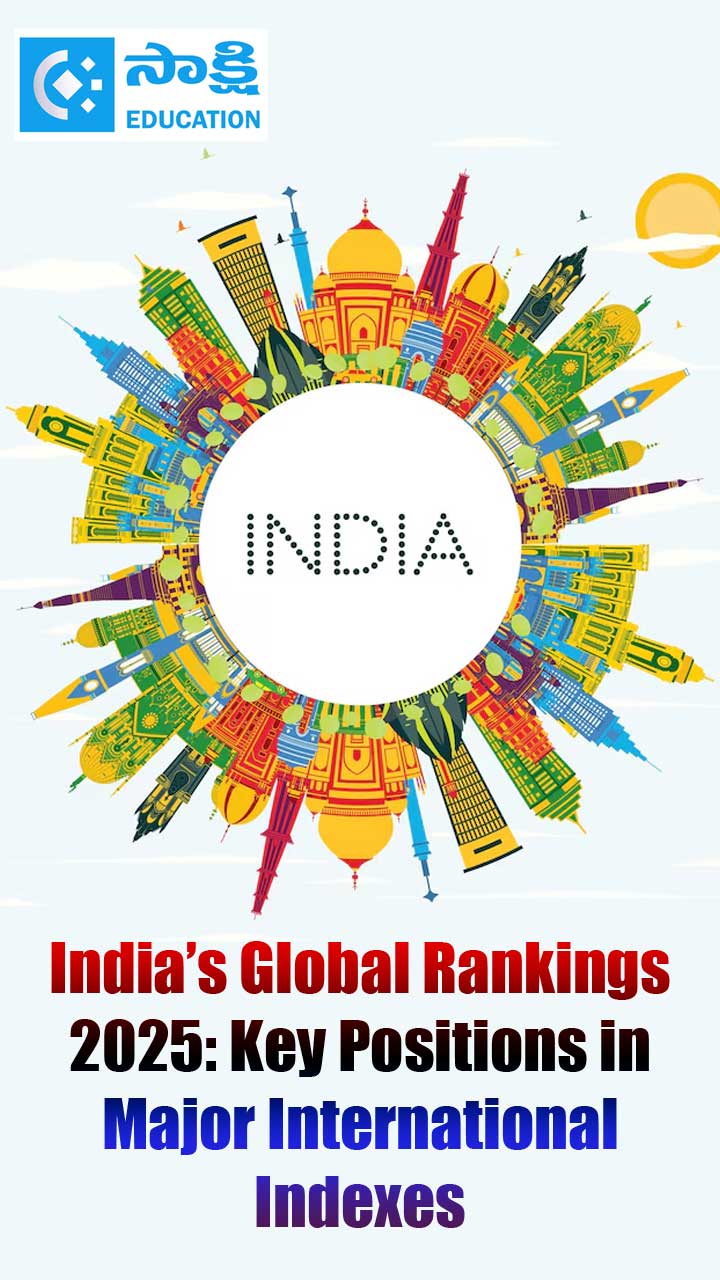Four point action plan for bright future
Sakshi Education

ASK The profiles of good engineer may be broadly sketched in terms of three components (ASK):
Step 1: Self learning
The teaching learning process in engineering is totally different from that of intermediate course. Wherein there are only three subjects (groups) to learn, study material will be provided and study hours under the guidance of faculty will be conducted. But in engineering there will be around 8 subjects in the first year and for each subject you must refer two or more books. It is not possible to learn everything about a topic from one-hour lecture given in class room. You must prepare notes about a topic from different books and must solve as many examples as possible. Try to spend more time in the library to go through as many books as possible and prepare notes. Not only curriculum books, but also general books to get awareness about the world around you must be consulted. This helps in improving the habit of learning.
Step2: Internship
Internship means short term industrial training. Engineering subjects are more practical oriented. Without practicals there is no meaning of studying engineering. Practicals will help better understanding of theory subjects. There is no need of worrying that internship means undergoing training in major companies only. It is very difficult to find internship in MNCs as there is heavy competition. Even if it is a small company or a small unit donot hesitate to take training. If you search in and around your own city you can find many small scale units from which you can learn more. Mechanical students can find such firms in autonagars in every city; civil students can do work under construction companies in their region and so on. Do not hesitate to learn; even electrical and electronics students can learn radio repair, house wiring, motor winding etc from your local people. Second year summer holidays are the right time to do internship. From the third year onwards you do not find time and must be ready for preparing for competitive examinations.
Step 3: Planning your career
In the third year itself you must lay foundation stone for your career. It takes minimum of one year preparation to get a good job or seat in premier institute for higher education. In my opinion, in today's competition, it is better to do PG program. You don't get chance to go for higher education if you join a job in future. It may create problems in your career growth also. If your financial background doesn't allow to go for higher education, then take campus recruitment training (CRT) and prepare for campus placements. CRT mainly focuses on communication skills and domain skills. They can be acquired by only practicing but not by learning. Hence one year rigorous preparation is needed.
If you are ready to go for higher education, once again you are at cross roads with confusion whether to go for MS or MBA or MTech or Civil services. If your attitude is inclined towards administrative positions it is better to go for MBA by taking CAT. Test yourself whether you have managerial capabilities to organize any event, then you are the right person to go for MBA. If you are more inclined towards social service and are inspired to do something for the society, then you are the right person to opt for Civils. It is not at all difficult to get into Civil services. It is only your attitude that makes difference. If you are interested in research, then you can go for MS in foreign universities or M.Tech in Indian universities. By achieving good score in TOEFL/IELTS and GRE you can get a seat in any good university. Otherwise you can take GATE examination to get a seat in Indian institutes. This will not only help you to get admission into PG Pogrammes. Also, now a days many companies like HPCL, Indian Oil, BEL, BHEL, Steel plants etc are offering jobs on the basis of GATE score.
Step 4: Live project
In the final year second semester you must do a live project for about six months. But most of the students neglect doing a good project and spend most of their time in taking coaching for campus placements. But it does not fetch you in long run even if you get a job. Live project means you must find out solution for any one of the current problems in your field of engineering. Even if it is not possible, try to understand the basics perfectly, select any one of the core topics and implement any one of the concepts that you are good at in that area; then it will become a good project. If possible, download IEEE papers in your interested area and try to implement them.
E. Srinivasa Reddy
Principal, ANU college of Engineering & Technology.
- Attitude that dictates the goals toward which their skills and knowledge will be directed – personal values, concerns, preferences and biases.
- Knowledge – the facts that they know and concepts they understand;
- Skill they use in managing and applying their knowledge, such as computation, experimentation, analysis, synthesis/design, evaluation, communication, leadership, and teamwork;
Step 1: Self learning
The teaching learning process in engineering is totally different from that of intermediate course. Wherein there are only three subjects (groups) to learn, study material will be provided and study hours under the guidance of faculty will be conducted. But in engineering there will be around 8 subjects in the first year and for each subject you must refer two or more books. It is not possible to learn everything about a topic from one-hour lecture given in class room. You must prepare notes about a topic from different books and must solve as many examples as possible. Try to spend more time in the library to go through as many books as possible and prepare notes. Not only curriculum books, but also general books to get awareness about the world around you must be consulted. This helps in improving the habit of learning.
Step2: Internship
Internship means short term industrial training. Engineering subjects are more practical oriented. Without practicals there is no meaning of studying engineering. Practicals will help better understanding of theory subjects. There is no need of worrying that internship means undergoing training in major companies only. It is very difficult to find internship in MNCs as there is heavy competition. Even if it is a small company or a small unit donot hesitate to take training. If you search in and around your own city you can find many small scale units from which you can learn more. Mechanical students can find such firms in autonagars in every city; civil students can do work under construction companies in their region and so on. Do not hesitate to learn; even electrical and electronics students can learn radio repair, house wiring, motor winding etc from your local people. Second year summer holidays are the right time to do internship. From the third year onwards you do not find time and must be ready for preparing for competitive examinations.
Step 3: Planning your career
In the third year itself you must lay foundation stone for your career. It takes minimum of one year preparation to get a good job or seat in premier institute for higher education. In my opinion, in today's competition, it is better to do PG program. You don't get chance to go for higher education if you join a job in future. It may create problems in your career growth also. If your financial background doesn't allow to go for higher education, then take campus recruitment training (CRT) and prepare for campus placements. CRT mainly focuses on communication skills and domain skills. They can be acquired by only practicing but not by learning. Hence one year rigorous preparation is needed.
If you are ready to go for higher education, once again you are at cross roads with confusion whether to go for MS or MBA or MTech or Civil services. If your attitude is inclined towards administrative positions it is better to go for MBA by taking CAT. Test yourself whether you have managerial capabilities to organize any event, then you are the right person to go for MBA. If you are more inclined towards social service and are inspired to do something for the society, then you are the right person to opt for Civils. It is not at all difficult to get into Civil services. It is only your attitude that makes difference. If you are interested in research, then you can go for MS in foreign universities or M.Tech in Indian universities. By achieving good score in TOEFL/IELTS and GRE you can get a seat in any good university. Otherwise you can take GATE examination to get a seat in Indian institutes. This will not only help you to get admission into PG Pogrammes. Also, now a days many companies like HPCL, Indian Oil, BEL, BHEL, Steel plants etc are offering jobs on the basis of GATE score.
Step 4: Live project
In the final year second semester you must do a live project for about six months. But most of the students neglect doing a good project and spend most of their time in taking coaching for campus placements. But it does not fetch you in long run even if you get a job. Live project means you must find out solution for any one of the current problems in your field of engineering. Even if it is not possible, try to understand the basics perfectly, select any one of the core topics and implement any one of the concepts that you are good at in that area; then it will become a good project. If possible, download IEEE papers in your interested area and try to implement them.
E. Srinivasa Reddy
Principal, ANU college of Engineering & Technology.
Published date : 11 Mar 2014 04:43PM



















